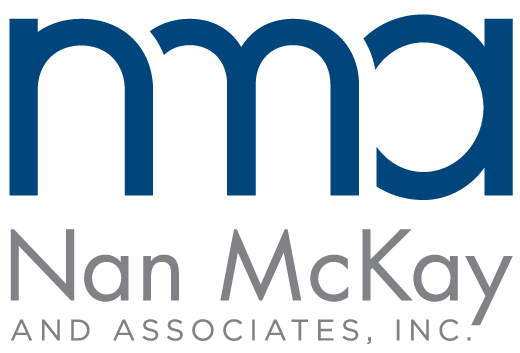What does the deregulation of HQS inspections mean for our industry?
Until last week, when HUD published the implementation notice for the changes mandated by the 2014 appropriations act, housing authorities were required to inspect units at the time of initial lease-up and thereafter at least once every twelve months. The new notice relaxes that requirement, specifying that an HQS inspection must occur at least once every two years.
It also provides PHAs with the option of relying on comparable inspections done by other agencies, such as those performed for the HOME or low-income housing tax credit (LIHTC) programs, if the other inspection uses similar standards to HUD's housing quality standards (HQS). This will be true for both initial and ongoing inspections.
PHAs are still responsible for ensuring that subsidies are paid only for units meeting HQS. The hope is that PHAs will focus inspections on the most risky units, while improving compliance overall.
In addition to this widely discussed change from annual inspections to biennial inspections, there's also the issue of self-certification, with relatively undefined guidelines. HUD offered some guidance last year with the issuance of Notice PIH 2013-17, which provided instructions for the use of photos during the HQS inspection process and included the key point that PHAs may use them to verify that deficiencies have been corrected.
These HQS deregulations are intended to save costs, reduce administrative burdens, and streamline rental programs. While they are now available for implementation by PHAs on a limited basis, further guidance and rule making is expected from HUD. However, we now have enough information to discuss and plan for these changes. How will they affect the affordable housing industry and, more importantly, how will they affect the families we serve?
Over the last year, the housing choice voucher program felt some of the most immediate and severe consequences of sequestration. Industry groups estimate that, due to sequestration, the program served about 70,000 fewer families as compared to a year earlier. Reductions in administrative fees have caused financial stress throughout the industry. Ultimately, the entire program has taken a beating over the last few years, and PHAs are struggling to find ways to continue operations and the business of serving families.
Providing access to affordable housing in safe, secure, and sanitary condition remains the mission of our agencies and the foundation of the HCV program. PHAs need to balance available resources to ensure that families have HAP contracts, that lease-ups are done correctly and on time, and that all other requirements are in place. As an industry, we find ourselves considering several weighty questions: How do we balance deregulation of HQS inspections with what's right for the family? How do our decisions reflect the mission statement at each individual agency? At what point do we lose sight of our mission statement?
In other words, just because we can, does that mean we should?
It's a delicate balance. We're faced with a moral dilemma which is driven by economics, need, and desire to help as many families as possible. And we recognize that it's not a perfect environment in today's world and certain things have to give.
Tip #1: Consider your PHA's mission statement.
Most agencies have always viewed themselves as the protector of their clientele, meaning that they are the guiding force that ensures all families have safe, secure, and sanitary housing. That's the mission statement of HQS inspections; it's been the mission statement from the beginning. In moving forward with these new pieces of deregulation, it's important that PHAs consider their own mission statements as they're designing and crafting ways to take advantage of these available resources. Just because these new options are available, are they always the best choice for our agencies and for the families in our program?
The agencies I've been working with recently are grappling with this question, and the answer isn't always immediately clear. Agencies are trying to put their resources in the very best places, and while no one is particularly excited about not doing reinspections or not confirming that repairs have been done, the budgets just don't allow us to do everything we'd like to do. These are very difficult decisions for agencies to make.
The real question is: Where do we put the family in the
mission statement, and how does that apply to deregulation?
Is it always a good idea, and if it is, is it always an all-or-nothing?
Ultimately, we should strive to find a balance between the new options available to us and how we can apply them to the program while staying true to our mission statement.
Tip #2: Don't assume, "Biennial is good, because it's going to save us money."
Biennial inspections are something we've seen handled in two different ways. In some cases, the PHA just cuts inspections down the middle — every odd number gets inspected this year, and the next year the other batch gets inspected. That's a more extreme option.
On the other hand, I work with several MTW agencies that, given this flexibility, chose to focus their efforts on properties that have not been maintained in HQS (that is, they have failed the first inspection) and developed their guidelines accordingly. For example, one agency said, "If you fail the first inspection, we're going to come back out in six months." They want to stay right on top of it. If you pass the first inspection, then you're eligible for the biennial. This reduces the potential for fraud and abuse by landlords.
In the high level, we have two points of deregulation that
are available: self-certification components (without a clear
idea of what that should look like) and biennial inspections,
which have been available to Moving to Work (MTW)
agencies for years and will now be available to all PHAs.
My concern, in the bigger picture, is when you start merging biennial inspections and self-certification. If an agency decides to do biennial inspections but keep reinspections, at least there's a check and balance. Or if an agency says they'll do annual inspections but allow landlords to self-certify, again, there's a check and balance. It's when you start combining both those options that you begin to see how things can unravel.
In the worst-case scenario, you could have a property that fails for significant deficiencies. The landlord opts to participate in the self-certification program. He signs an affidavit that repairs have been made, no reinspection has been put into place, and you end up with a property that hasn't been looked at in two years and isn't safe, secure, or sanitary.
When we push deregulation options to the furthest extreme, it's vital that we consider the risk of paying HAP on a property that doesn't meet minimum HQS and is putting families in danger of living in such conditions for a period of two years before someone even goes out to check.
Tip #3: Think through what your agency would need to manage a well-run self-certification program.
With self-certification, the idea is that we're eliminating the reinspect process, which would save time, effort, and energy for agency staff. But before making a decision, consider what the self-certification option might look like at your agency. Remember, you still have to have an affidavit or an inspection within the 30 days. Even self-certification doesn't allow you to send out a notice and then not have a follow-up. So if you wait 21 days to find out if the certification comes in, and it doesn't, then you're out of time to give reasonable notice to the landlord and the tenant that the inspection is going to move forward.
The primary issue with self-certification, then, is the need it creates for a new tracking system. The most viable one I've seen is that you actually schedule the reinspection, provide the self-certification documentation with a drop-dead date (say, 21 days), and if they haven't provided the self-certification documents within that time period, then the reinspection automatically moves forward. Otherwise you run into a situation where you don't have adequate time to notice it and you're going to be falling outside of the 30-day reinspection notice required by HUD.
So does self-certification actually save time? You've got clerical staff touching these documents two, three, four times — picking up the file, scheduling the reinspection, managing and tracking the self-certification, possibly including images to document proof of repair and appending them to the file, and going in and canceling the reinspection. And they're doing all this manually, because no housing software has a solid tracking system for self-certification — it's something that's just hit the boards, and everyone's doing it a little differently. There's room for a lot of things to slip through the cracks and have a direct impact on SEMAP findings.
Another issue with self-certification is the question of who's going to sign the affidavit — owner, tenant? We're asking someone who's never been to HQS training to certify that a repair meets HQS standards. So the other approach I've seen is agencies asking for proof of repair, such as a photograph or a receipt. But now somebody has to gather the documentation, we still have the notice issue, we still have the reinspection issue, and now you have to have staff focus on tracking every single fail to determine whether or not a self-certification came in, and if it did come in, did the documentation meet minimum standards for your agency to mark it as a pass?
That's a lot of subjective review. It's time-consuming, and it puts an agency at substantial liability because now your agency is making a decision as to whether or not a landlord has provided adequate verification of repair.
Of course, we'll know more about the potential benefits and drawbacks of HQS deregulation after HUD integrates stakeholder input into a final rule. But for the time being, these questions should give us plenty to think about.
As project manager of NMA Inspections, Michael Petragallo leverages over 20 years of experience providing HQS inspection services and more than 1.5 million successfully completed HQS, UPCS, and rehabilitation inspections. Our team of NMAI inspectors have an average background of 12 years’ experience conducting inspections, are highly qualified and certified in HQS and/or UPCS, and have completed required sensitivity and sexual harassment training as well as extensive criminal background checks before beginning work. For more information about NMA Inspections, please visit our website or contact us directly at sales@nanmckay.com.




